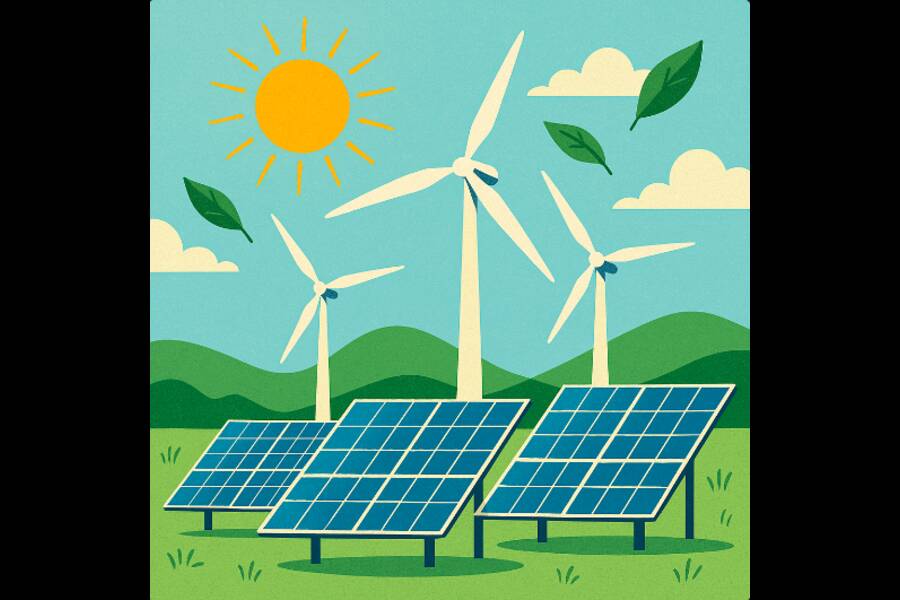As the global energy sector undergoes a transformative shift towards sustainability, industry giants BP and Shell are actively acquiring renewable energy assets to align with the changing landscape. This strategic pivot is driven by a combination of regulatory pressures, market dynamics, and the overarching goal of achieving net-zero emissions.
BP’s Strategic Investments in Renewable Energy
Lightsource BP Acquisition
In October 2024, BP completed its acquisition of the remaining 50.03% stake in Lightsource BP, a leading solar power developer, for £400 million ($518 million), also assuming £2.1 billion in debt. This move expanded BP’s global presence in onshore renewable energy, adding a 62GW development pipeline across 19 markets.
BP Bunge Bioenergia
BP agreed to acquire Bunge’s 50% stake in their Brazilian biofuels joint venture, BP Bunge Bioenergia, for approximately $1.4 billion. This acquisition positions BP as a leading biofuels producer in Brazil, with the capacity to produce around 50,000 barrels per day of ethanol equivalent from sugarcane.
Australian Renewable Energy Hub
BP increased its stake in the Australian Renewable Energy Hub (AREH) to 64% by acquiring Macquarie Group’s 15% share. The AREH aims to develop up to 26GW of combined solar and wind power capacity in Western Australia’s Pilbara region, producing green hydrogen and ammonia for domestic use and export.
Archaea Energy Acquisition
In 2022, BP acquired Archaea Energy, a leading U.S. renewable natural gas (RNG) producer, for $4.1 billion. By 2024, Archaea had started up nine new RNG plants, contributing to BP’s bioenergy business growth.
Shell’s Expansion into Renewable Energy
Nature Energy Acquisition
Shell completed the acquisition of Nature Energy, a Danish renewable natural gas producer, in 2023. This acquisition supports Shell’s ambition to build an integrated RNG value chain at a global scale.
Sprng Energy Acquisition
In 2022, Shell acquired Sprng Energy, an Indian renewable energy platform, enhancing its presence in the Indian market and expanding its renewable energy portfolio.
Volta Inc. Acquisition
Shell acquired Volta Inc., a U.S.-based electric vehicle charging network, in 2023. This acquisition expanded Shell’s EV charging infrastructure, operating over 3,000 charge points across 31 states.
Hollandse Kust Noord Wind Farm
Shell’s joint venture with Eneco, CrossWind, completed the Hollandse Kust Noord offshore wind farm in the Netherlands in 2023. The 759 MW wind park contributes significantly to the Dutch electricity grid.
Global M&A Activities in Renewable Energy
Europe
- TotalEnergies: Acquired a 50% stake in U.S.-based Clearway Energy, expanding its renewable portfolio.
- Iberdrola: Acquired French renewable energy company Aalto Power and offshore wind projects in Taiwan.
United States
- RWE Clean Energy: Acquired Con Edison Clean Energy Businesses for $6.8 billion, marking one of the largest renewable energy deals in the U.S.
Asia
- JSW Neo Energy: Acquired a 1,753 MW renewable energy portfolio from India’s Mytrah Energy for $1.28 billion.
Africa
- Africa Finance Corporation and Infinity Group: Acquired Lekela Power, a leading renewable energy company in Africa, for $1.5 billion.
Australia
- BP: Increased its stake in the Australian Renewable Energy Hub to 64%, focusing on large-scale renewable energy and green hydrogen production.
Evaluating Successes and Challenges
Successes
- Strategic Diversification: BP and Shell have successfully diversified their energy portfolios, reducing reliance on fossil fuels and positioning themselves for a low-carbon future.
- Market Expansion: Acquisitions have enabled entry into new markets and sectors, such as electric vehicle charging and biogas production.
Challenges
- Integration Complexities: Merging operations of acquired companies can pose challenges in terms of culture, systems, and processes.
- Regulatory Hurdles: Navigating different regulatory environments across countries can delay or complicate integration efforts.
- Market Volatility: Fluctuations in renewable energy markets and technologies can impact the expected returns on investments.
Conclusion
BP and Shell’s aggressive acquisition strategies in the renewable energy sector underscore a broader industry trend of traditional oil and gas companies transitioning towards sustainable energy solutions. While these moves present opportunities for growth and diversification, they also come with inherent challenges that require careful navigation. As the global energy sector continues to evolve, the success of these strategies will hinge on effective integration, innovation, and adaptability to changing market dynamics.

